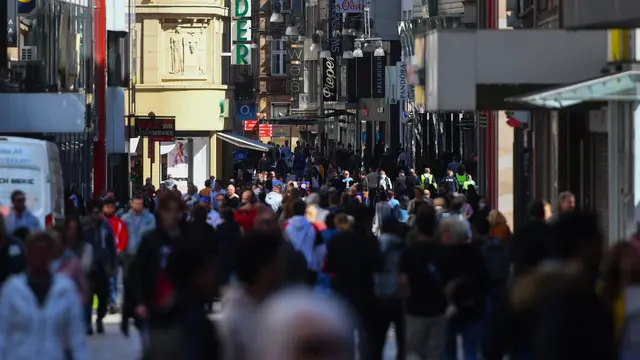
Shoppers return to the streets in Dortmund with small stores reopening. /Ina Fassbender/AFP
Germany has allowed some non-essential shops to trade as it makes the first cautious steps towards reopening its economy since the coronavirus lockdown was imposed last month.
Shops with a surface area of 800 square meters or less were allowed to reopen on Monday in much of the country. Previously, stores had to be deemed essential in order to remain open.
The move comes as local governments are encouraging – and in some cases requiring – people to wear masks. Bavaria became the second of Germany's 16 states to require people to cover their mouths and noses in stores and on public transportation.
Germany's chancellor, Angela Merkel, advised people to continue observing social distancing regulations, despite the loosening of restrictions. "We must remain vigilant and disciplined," she said.
The country plans to open schools to many students again in the first week of May.
Germany has had a steady decline in new coronavirus cases, although officials have warned the situation remains fragile. The country has had low death rate from COVID-19 compared with other countries and has benefitted from an early and robust testing program.
In Essen people were also back out shopping. /AP
It's not just stores that are ramping up. After a four-week standstill, Germany's car manufacturers are beginning production again, with both Daimler and Volkswagen bringing some European production facilities back online this week. Volkswagen says it will introduce safety measures such as requiring workers to take their temperature before coming to work.
It's still not clear when the car makers will return to pre-crisis levels of production and, critically for them, what type of demand there will be. The industry employs more than 800,000 people and German companies are among the world's largest car makers. Volkswagen says its sales were down close to 40 percent in March.
However, the resumption of normal activity in China, a key market for German car makers, may help them weather the storm as the pandemic continues to disrupt life around the world.
 简体中文
简体中文



